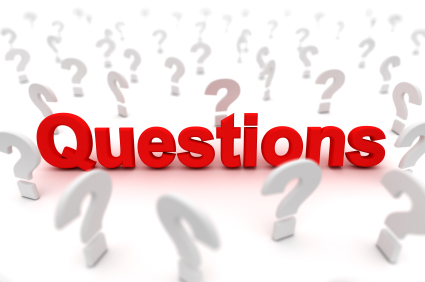Essential Questions vs. Questions of Import
by Jamie McKenzie (about author)

Image © iStock.com
Grant Wiggins' (1950–2015) invention of essential questions while working with the Coalition of Essential Schools in the 1980s was one of the most powerful contributions to curriculum design in the previous century and continues to have great significance today for those schools hoping to engage students in powerful thinking and exploration. These questions often kindle curiosity and provide the driving force for a unit lasting several weeks or months. When first introduced by the Coalition, a single question might serve to organize learning for an entire year.
"What makes people want to explore?"
In some schools, enthusiastic administrators pushed teachers to incorporate essential questions into daily lessons in ways that trivialized them. After working with teachers and librarians in one district suffering from this affliction, I came up with the concept of "questions of import" to capture the idea of questions that fell below the exalted level of importance expected for essential questions. These questions may serve well to drive learning during a single class or a week of study, and sometimes a group might wrestle with a half dozen questions of import during a single period.
This article will provide examples of each type of question and define them in ways that make them user friendly for classroom teachers.

Image © iStock.com
The Most Important Questions of All
Essential questions usually touch upon matters of life and death, identity and meaning. Don Henley speaks of "tryin' to get down to the heart of the matter" in his song. (YouTube)
When the doctor told me I had prostate cancer twenty years ago, the essential question facing me was which course of treatment offered the best chance of a prolonged life with minimal damaging side effects.
At that time, there was enormous pressure on men to do surgery, a treatment then called "the gold standard." Fortunately, as the Internet was then emerging with lots of online patient groups, I was able to find testimony and information that pointed me toward radiation seeds (brachytherapy) rather than surgery. Looking back now the words of Robert Frost come to mind.
| Two roads diverged in a wood, and I— |
|
| I took the one less traveled by, |
|
| And that has made all the difference |
Essential questions usually probe the deep and often confounding issues confronting us — complex and baffling matters that elude simple answers:
| Life |
Death |
Marriage |
Identity |
Purpose |
| Betrayal |
Honor |
Integrity |
Courage |
Temptation |
| Faith |
Leadership |
Addiction |
Invention |
Inspiration |
The greatest novels, the greatest plays, the greatest songs and the greatest paintings all explore essential questions in some manner. Essential questions are at the heart of a search for Truth.
On a Lesser Level of Importance
Questions of import matter, but they do not reach for the sky.
"What's the best way for me to treat my friend right now?"
"Is my friend my friend?"
"What's the best way for me to spend the rest of this afternoon?"
Boys on the Beach
Go to http://www.nga.gov/cgi-bin/pimage?56682+0+0
"What might be the painter's message in this painting of the boys?"
"What is the mood?"
"How does the painter support the message?"
"Give a summary of the main ideas."
"Which details in this painting help you to have a clear image of the main idea?"
Essential questions tend to be grander than questions of import - exploring sweeping major issues of life that could serve as the basis for a year's study. They might even be worthy of a lifetime of study.
Questions of import, on the other hand, while consequential, may sometimes be settled within the hour.
Characteristics of Each Question Type
Essential Questions |
Questions of Import |
- The question probes a matter of great importance.
- The question requires movement beyond understanding and studying - some kind of action or resolve - pointing toward the settlement of a challenge, the making of a choice or the forming of a decision.
- The question cannot be answered by a quick and simple “yes” or “no” answer.
- The question probably endures, shifts and evolves with time and changing conditions - offering a moving target in some respects.
- The question may be unanswerable in the ultimate sense.
- The question may frustrate the researcher, may prove arid rather than fertile and may evade the quest for clarity and understanding.
|
- The question probes a matter of some importance.
- The question points toward the settlement of a challenge, the making of a choice or the forming of a decision.
- The question cannot be answered by a quick and simple “yes” or “no” answer.
- The question may sometimes be settled quickly.
- The question is generally answerable.
- The question can usually be considered and managed with satisfaction.
|
References
Essential Questions: http://questioning.org/mar05/essential.html
Questions of Import: http://questioning.org/feb2010/import.html